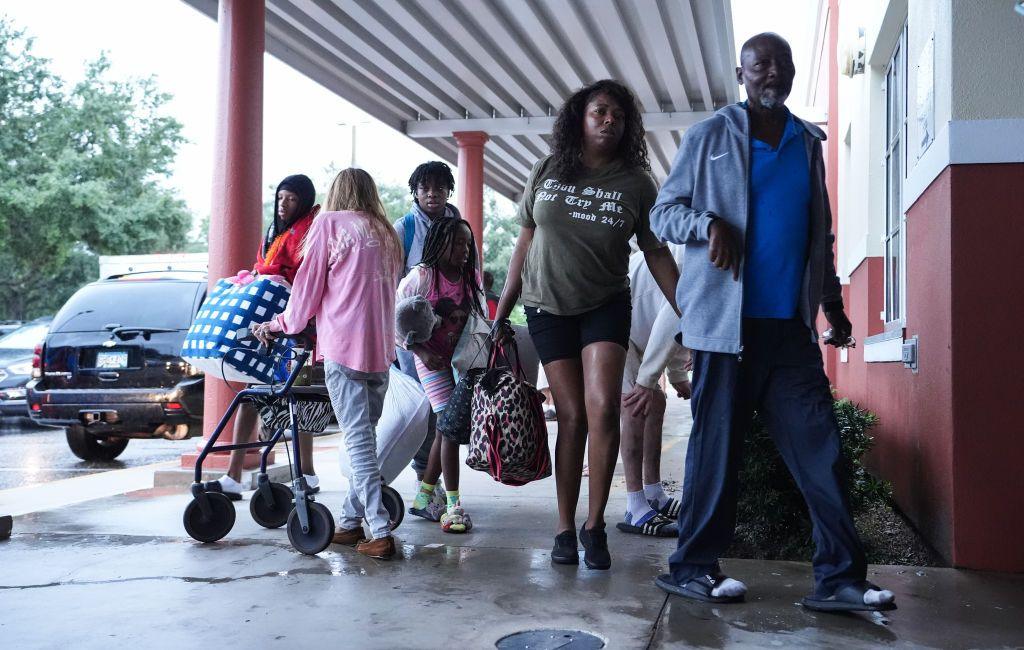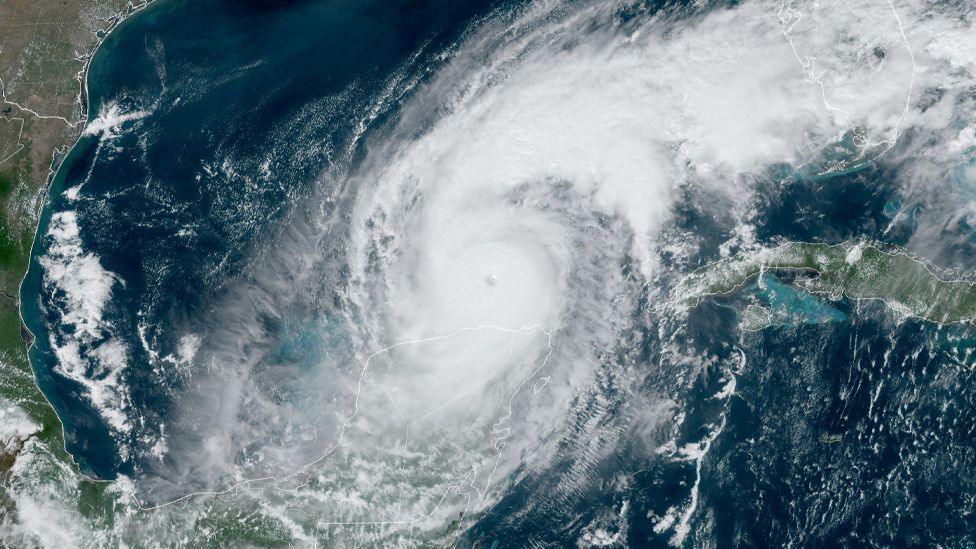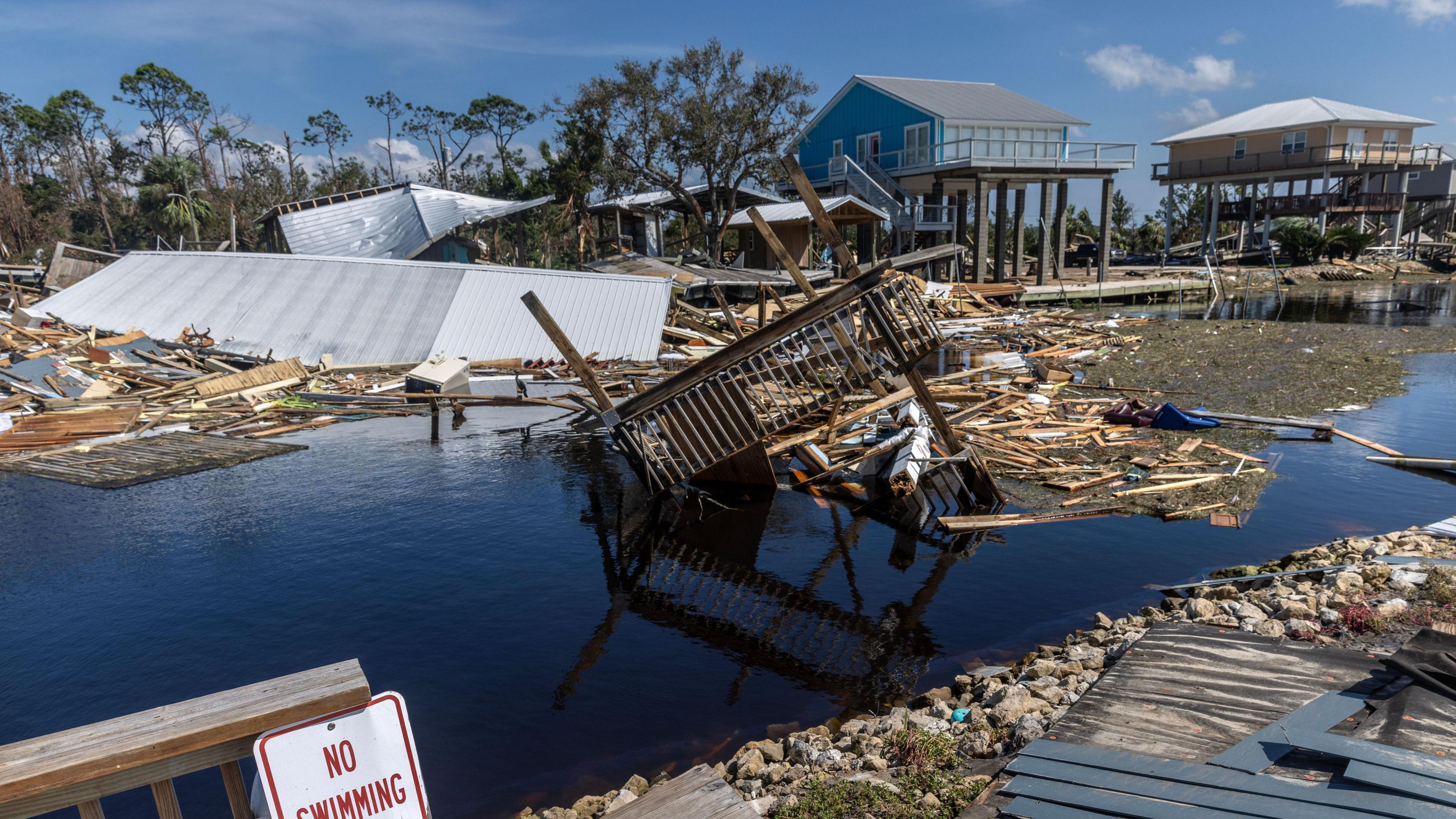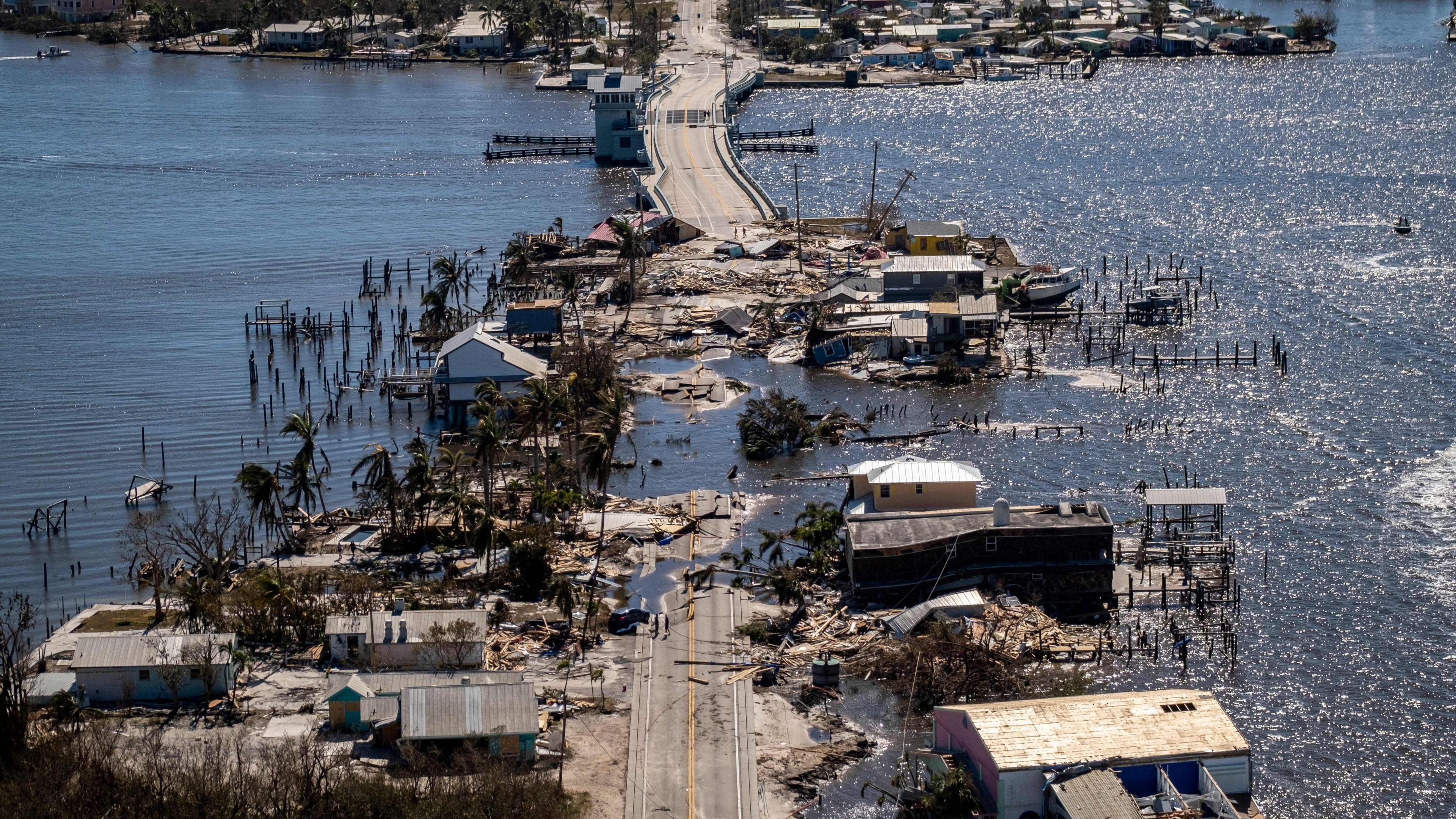Waiting out hurricane a 'gamble we weren't willing to make'
Residents prepare as outer bands of Milton hit Florida
- Published
With officials warning that time is rapidly running out to evacuate before Hurricane Milton barrels down on Florida, residents have been left with difficult questions: Where to go? What to take? What's next?
ML Ferguson thought she could hunker down and beat Hurricane Helene – but just weeks after that storm nearly wiped her out, she’s not taking any more chances.
She lives in Anna Maria, a small resort city on a Gulf coast island. Residents there are preparing for a second wave of destruction, and many, like Ms Ferguson, are fleeing.
She had underestimated Helene, she said. She thought her house would be safe, but ultimately she had to be rescued when a deluge of water began to seep through her walls.
Her home narrowly avoided being declared uninhabitable, and she was still busy clearing the debris when Milton began bearing down on Florida.
She fears for what comes next.
"This one is going to be way worse than Helene," she said while sitting in traffic as she fled the area. "My car is totalled, we were all laid off from our job, and [my belongings] were ruined."
"After this storm hits, I will officially become homeless," Ms Ferguson added.
The hurricane, which could be the worst to strike Florida's Gulf Coast in over a century, is expected to strike near the city of Tampa late on Wednesday or in the early hours of Thursday.
Repeated warnings that Milton could be catastrophic and life-threatening have prompted a mass exodus from coastal areas, and left residents and visitors with a profound sense of fear and unease.
Hurricane Milton approaches Florida
Gerald Lemus has never evacuated from a hurricane before.
A lifelong resident of Bradenton, a coastal city 45 miles (72km) south of Tampa, Mr Lemus has lived through extreme weather before. Time and time again, he would hunker down in the family home he was raised in, where he now lives with his eight-year-old daughter and partner.
But with Milton, something felt different.
“These storms were just getting stronger,” said Mr Lemus, 33. “The whole rapid intensification thing really freaked me out,” referring to a trend of quickly strengthening storms, fuelled by warm sea temperatures.
The biggest factor was his daughter, he said.
"I couldn't traumatise her," he told the BBC. "It's a gamble we weren't willing to make."
So they packed their car with necessities, photos, their two cats and a dog, and drove two hours north-east, to a hotel in Kissimmee, just south of Orlando, about 104 miles inland.
The cost for Mr Lemus - $650 for a room until Friday - is not insignificant. He said he had to dip into his savings to cover it, which caused an “eerie feeling".
But it was a simple choice.
“Do I want to spend the money and regret spending the money? Or do I want to regret putting my family’s life in danger?” he said. “I’d rather spend the money."
Those who do leave must also make difficult decisions about what to take with them in already overloaded vehicles as they drive towards shelters and towns further away.
Matt Fustini, who lives in the town of Largo, has never evacuated before, but this time is prepared to leave with the bare essentials: cash, fuel, insulin for his diabetic mother and irreplaceable family heirlooms.
"We have a family tree that goes back to the great fire in London that was hand-done by my grandmother," he explained.
Rheaanne Ramires, who evacuated to Tennessee after being caught in a traffic jam for 15 hours while leaving her home in Maderia Beach, said the decisions were agonising.
"You work your whole life to get your house. We try and pack as much as we can: documents, sentimental photos," she said. "Your house is where you've raised your kids. My house has been in the family since the 1950s."
"It's devastating to not know what you're going to come back to," she added. "Your whole house could blow away."
Sylvester Fernandez, 73, planned to wait out the hurricane at his home in Homestead near Miami, but early Wednesday was woken by the sound of a warning on his phone.
"Everything went dark, no internet, no nothing," he said. "It was really scary. It said go and find somewhere safe."
While Homestead will not face the brunt of the storm, he said it was "too risky" to stay, although most of his neighbours "don't want to leave".
He is now considering leaving Florida entirely.

Thousands of Florida residents have fled their homes to head for shelters further inland.
Despite the warnings from officials that remaining in the area could be deadly, some Floridians are unable, or unwilling, to leave.
Tampa resident Chynna Perkins, for example, toyed with the idea of leaving her home alongside her husband and two large dogs, but ultimately decided to stay and trust in her newer construction home.
Even if she had wanted to evacuate, she added, she is not sure it would have been possible.
"I don't think people really understand how much planning has to go into a decision like this," she said. "There's so much traffic and barely any gas available right now. People are running out of gas on the highway."
Related topics
- Published10 October 2024

- Attribution
- Published9 October 2024

- Attribution
- Published9 October 2024
